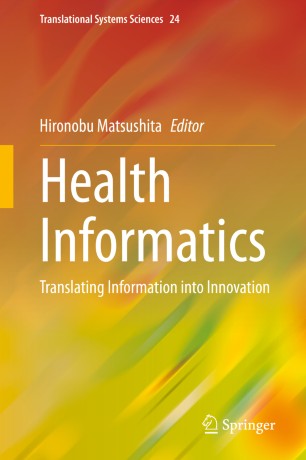

Most ebook files are in PDF format, so you can easily read them using various software such as Foxit Reader or directly on the Google Chrome browser.
Some ebook files are released by publishers in other formats such as .awz, .mobi, .epub, .fb2, etc. You may need to install specific software to read these formats on mobile/PC, such as Calibre.
Please read the tutorial at this link: https://ebookbell.com/faq
We offer FREE conversion to the popular formats you request; however, this may take some time. Therefore, right after payment, please email us, and we will try to provide the service as quickly as possible.
For some exceptional file formats or broken links (if any), please refrain from opening any disputes. Instead, email us first, and we will try to assist within a maximum of 6 hours.
EbookBell Team

4.7
76 reviewsThis book is the first to approach healthcare informatics from the perspective of innovation. Drawing on the unique pairing of information and innovation, it offers an analysis to help readers rethink information technology, knowledge management, interprofessional collaboration and the generation of wisdom in the context of healthcare.The concept of “translational” research stems from the medical and health sciences, and features bidirectional and recursive information-generation processes involving bed-to-bench and bench-to-bed approaches. Based partly on this, translational systems science has become a new trend within systems sciences, motivated by the need for practical applications that help people by offering holistic systems solutions for complex ideas. Today, numerous innovations are emerging in diversified clinical practices, and there has been a remarkable convergence of new technologies in disciplines like genome therapy, immunotherapy, iPS cells, imaging diagnosis, personalized medicine, molecular targeted drugs, surgical robots, and remote nursing. Innovation is also occurring in health management fields, including health records, insurance reimbursement methods, quality control, and safety. In these areas, big data and machine learning are accelerating innovation. Behind these innovations are the creation, sharing, bridging, and translation of data, information, knowledge, and wisdom, and as such health informatics is critical in promoting health innovations.The book explores the horizons of health informatics, introducing cutting-edge practical cases and theoretical frameworks, including but not limited to fields such as big data, machine learning, drug discovery, interprofessional collaboration, electronic health records, robotics, telenursing, quality improvement, and safety.